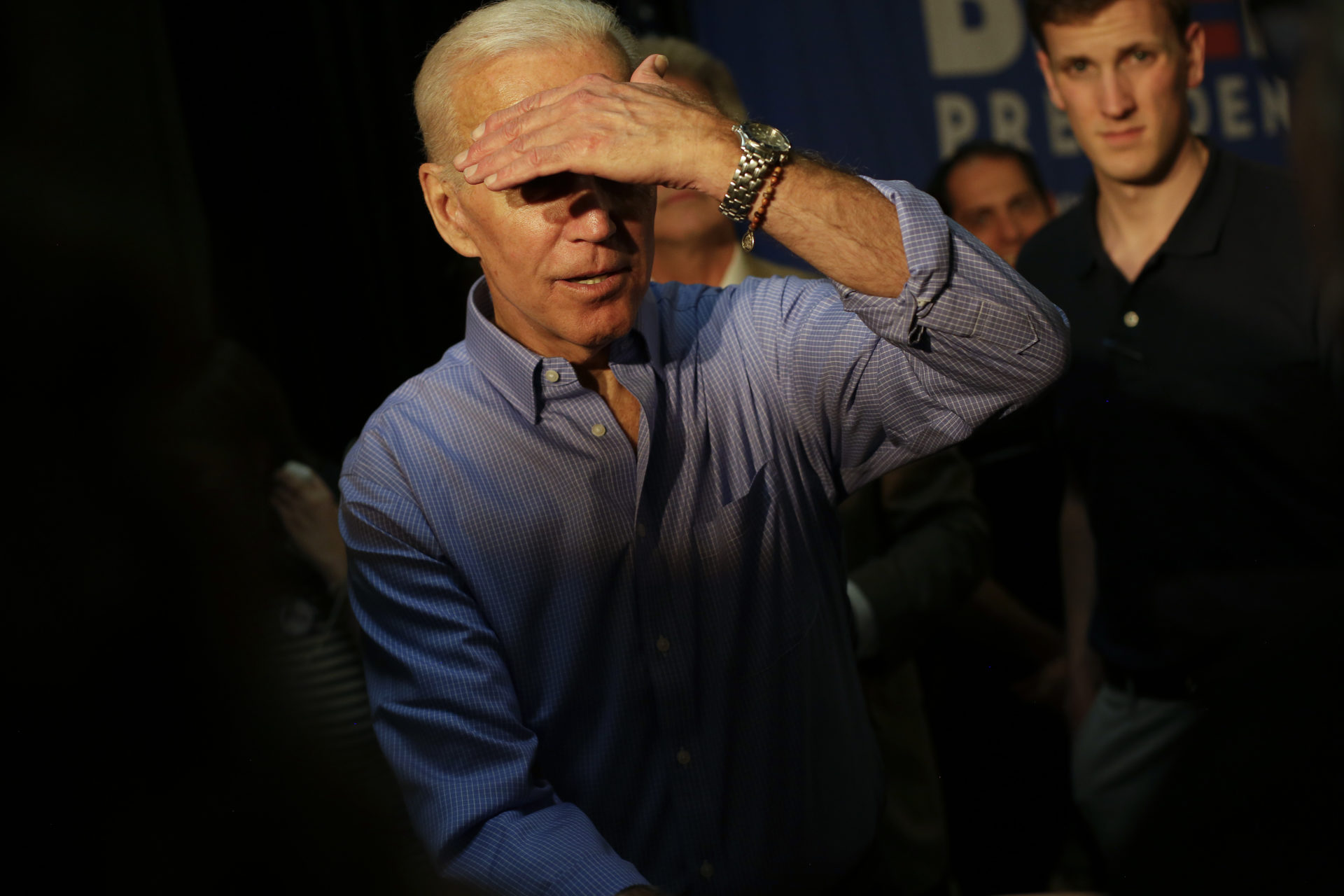The Democratic Presidential Race Is Closer Among the Primary’s Likeliest Voters

Key Takeaways
Former Vice President Joe Biden’s respective leads over Sens. Kamala Harris of California, Elizabeth Warren of Massachusetts shrink by 9 and 6 percentage points in poll of Democratic primary electorate’s most likely voters.
Sen. Bernie Sanders (I-Vt.) underperforms his overall vote share by 7 points among highly likely primary voters.
Sens. Kamala Harris of California and Elizabeth Warren of Massachusetts have risen up the ranks of contenders for the Democratic presidential primary in recent months, closing the gap between the field and its current leader, former Vice President Joe Biden.
New Morning Consult polling showing preferences among the primary electorate’s most likely voters suggests that gap may be even smaller than it appears.
Biden holds respective 17- and 18-point leads over Harris and Warren in the latest survey of 16,599 Democratic primary voters, conducted July 1-7. But that advantage shrinks to 8 points over Harris and 12 points over Warren among the 4,604 voters who are most likely to vote: those who said they’re absolutely certain to vote in 2020, have voted in previous elections and are extremely interested in politics and public affairs. Both samples have 1-point margins of error.
Democratic strategist Adrienne Elrod, who served as director of strategic communications for Hillary Clinton’s 2016 campaign, said the polling shows Biden’s support to be soft -- particularly among the most motivated voters.
“While the top priority of a majority of voters is to defeat Trump and most still believe Biden is the best to take him on, that number is wavering and giving way to newer faces on the scene like Harris and Warren,” she said in an email. “If they can continue to convince voters that they too are just as electable in a head to head match up with Trump, I suspect this trend will continue.”
A Biden adviser said Wednesday that not one demographic is powering Biden’s lead in the Democratic primary, and the fundamentals of his support, such as his steady favorable rating, are strong.
It is true that Biden has held steady, but both Harris (by 4 points) and Warren (by 9 points) have improved their standing with the most likely Democratic voters since Morning Consult polling conducted Feb. 1-28, which also had a 1-point margin of error.
While Harris and Warren overperform with the party’s likeliest voters, it’s the opposite effect for Sen. Bernie Sanders (I-Vt.), who trails the former vice president among the likeliest primary voters by 17 points, compared with a 12-point deficit among the overall primary electorate.
The most enthusiastic voters are 7 points less likely than the overall primary electorate to give Sanders first-choice status, 12 percent to 19 percent, while they’re 7 points more likely to back Harris. Warren has a 4-point advantage with the group compared to the overall electorate.
Since February, Sanders has lost 5 points with the group, matching his movement among the overall electorate over the same time period.
The lost momentum among the party’s most engaged voters may be a concern for Sanders, but there is also reason for optimism: potentially historic turnout. Voter participation in the 2018 midterm elections was the highest since 1914, according to the United States Elections Project.
Sarah Ford, a spokeswoman for the Sanders campaign, said the senator’s base is made up of people who “are more likely to be unsatisfied with the political status quo and less engaged with the political process.”
“In 2016 and today, Sen. Sanders motivates these disaffected voters and gets them to the polls when they otherwise wouldn't participate,” she said in an email Wednesday.
Eli Yokley is Morning Consult’s U.S. politics analyst. Eli joined Morning Consult in 2016 from Roll Call, where he reported on House and Senate campaigns after five years of covering state-level politics in the Show Me State while studying at the University of Missouri in Columbia, including contributions to The New York Times, Politico and The Daily Beast. Follow him on X/Twitter and on LinkedIn @eyokley. Interested in connecting with Eli to discuss his analysis or for a media engagement or speaking opportunity? Email [email protected].